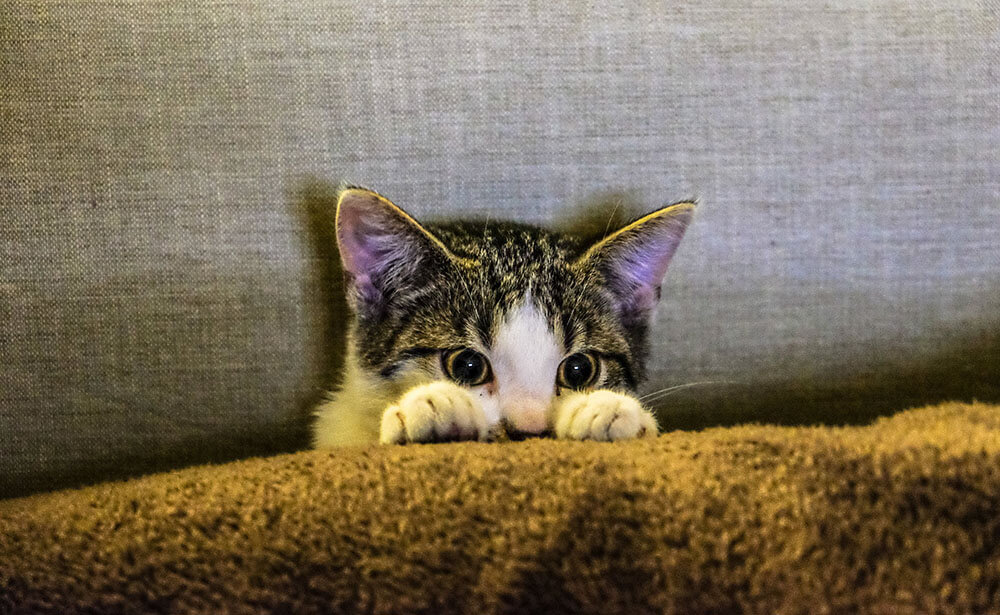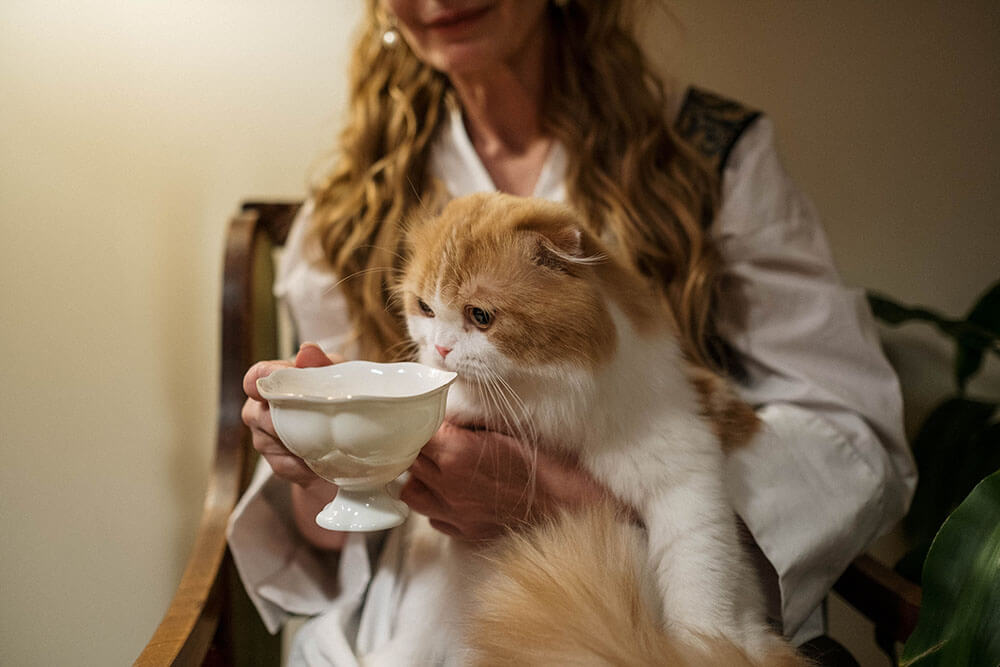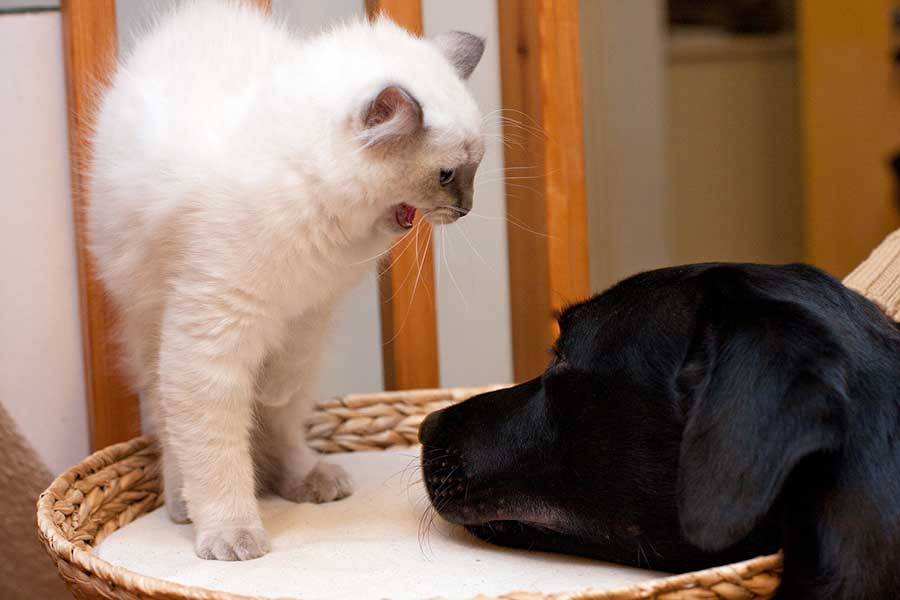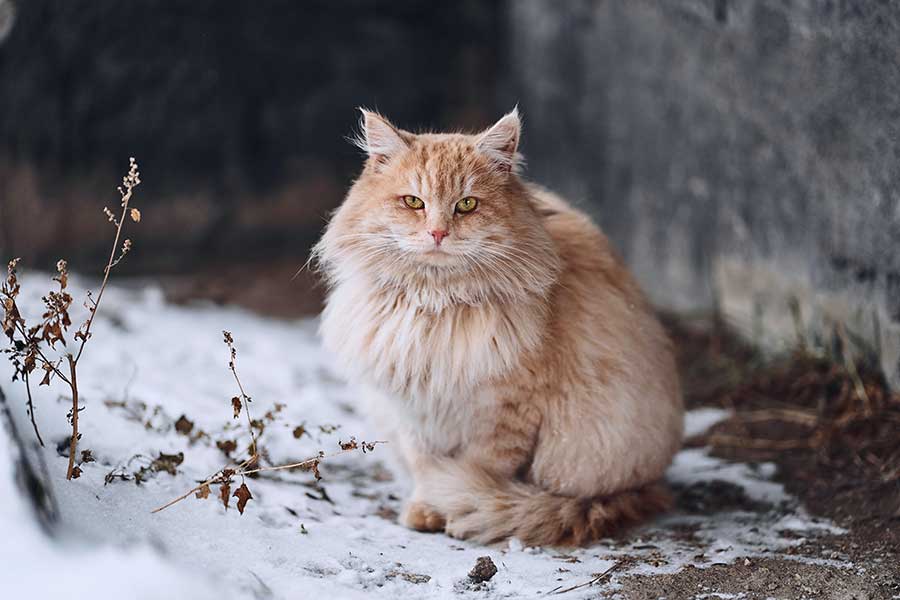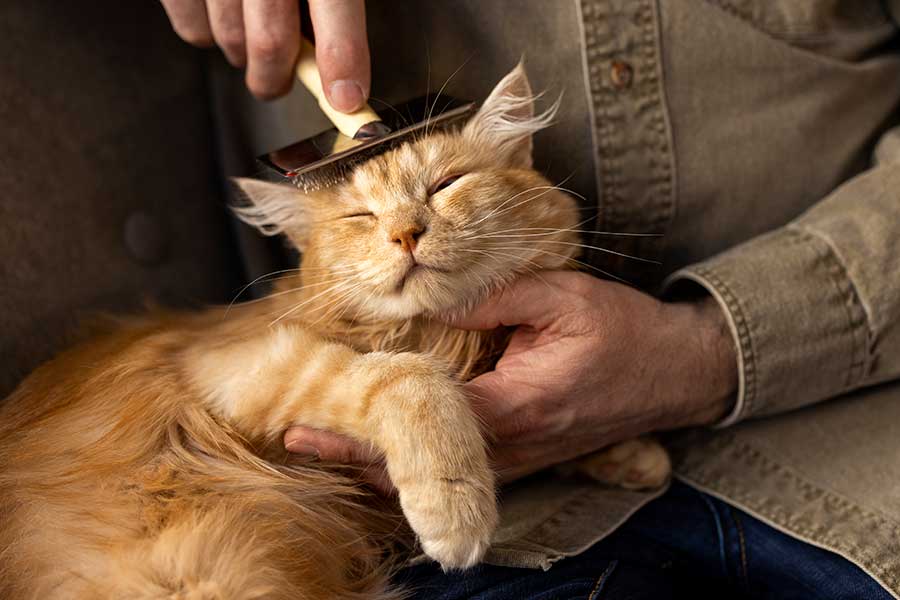Why My Cat is Anxious?
Anxiety in cats is a complex condition that is characterized by a range of behavioral and physiological symptoms. It is a condition in which a cat experiences fear and discomfort triggered by various factors. This can include loud noises, unfamiliar surroundings, fear of injury, trouble, punishment, rough handling, or changes in routine, among others.
Additionally, cats can also undergo anxiety and stress due to heat signs, pregnancy, a recent history of trauma, or regular disease treatments.
Identifying the underlying cause of anxiety in cats is the first step to providing effective treatment. This may involve making changes to the cat’s environment, such as reducing noise levels or providing more hiding places. In some cases, medication may also be necessary to manage anxiety symptoms and improve the cat’s quality of life.
Symptoms of Anxiety in Cats
- Aggressive behavior
- Frequent urination
- Anorexia
- Hiding
- Trembling with fear
- Moving away from the owner
- Sitting in corners
- Erect body and tail
- Increased heart rate
- Rapid respiration
To read more about the symptoms of anxiety in cats click the link below:
https://www.rd.com/article/cat-anxiety/
Tips to Reduce Anxiety in Cats
Understanding the root cause of your cat’s anxiety and stress is crucial for effective treatment. Once the underlying cause is identified, resolving it quickly can significantly reduce the duration of treatment and recovery time, which can range from a week to several months. To help alleviate your cat’s anxiety and stress, here are some powerful and proven tips. Let’s discuss them in detail.
- Give More Attention and Love
Cats are sensitive and demanding. They can behave abnormally if they feel neglected or ignored. They need optimal attention, love, and care to be in their comfort zone. So, if you notice your cat is acting differently and seems anxious and stressed, be aware it needs more attention and love from you.
One way to address this issue is by spending more quality time with your cat. Try playing, grooming, or simply talking to your cat. This will not only provide your cat with the attention and love it craves but also help strengthen your bond thus relieving it from anxiety and stress.
Remember, cats need attention and love just like any other pet. By paying attention to your cat’s behavior, spending quality time with it, and providing it with a safe and comfortable environment, you can ensure that your feline friend is happy, healthy, and content.
- Create a Stress-free and Safe Environment
Providing a safe and serene environment for your cat can help reduce its stress and anxiety. Create a comfortable and safe environment for your cat by providing it with a cozy bed, a clean litter box, fresh water, and high-quality food. This will make your cat feel more secure and happy in its surroundings.
In addition, don’t make sudden changes to your cat’s environment or introduce something new in their living space. If you sense your cat is anxious and stressed, try to recreate the conditions that were present when your cat behaved normally. Over time, your cat will adapt to the new environment and become less fearful of its surroundings and objects.
- Lap-feed your Cat
Cats love to be pampered when anxious or stressed. They may lose their appetite, hide in corners, or tremble with fear. Pay attention to your cat’s behavior and offer comfort.
One way to do this is by calling your cat affectionately by name, rubbing your hands on its back, and holding it in your lap while feeding it. Not only does this help reduce your cat’s fear and boost its confidence, but it also encourages it to resume its regular eating habits.
- Don’t Underestimate the Play Therapy
If your cat is showing signs of anxiety or stress, such as hiding in corners or avoiding you, it’s important to take steps to help them feel more comfortable and relaxed. For example, you can engage them in games using a variety of different toys.
Playing games with your cat can be a great way to help them become more familiar with their surroundings, which can reduce their anxiety and stress. By introducing your cat to different toys, you can also help them develop new skills and abilities, which can boost their confidence and give them a sense of accomplishment.
When playing games with your cat, start with simple tasks and gradually increase the difficulty level over time. This will help your cat build their confidence and feel more comfortable as they play. Always reward your cat with treats or praise whenever they complete a task, this will help to reinforce positive behavior and encourage them to continue playing.
- Use Pheromone Sprays: A Natural Solution for Stress Relief
Using pheromones is a safe and effective way to help your feline friend feel more relaxed and comfortable when anxious or stressed. Pheromones are natural chemicals that cats release under different situations and serve as a means of communication between them. They can have a calming effect on cats, and they can be used to alleviate anxiety and stress.
Pheromone sprays are available in different formulations and can be used to calm cats when you notice any change in their behavior. Whether you have a cat that is prone to anxiety or stress, or you simply want to create a more calming environment for your feline companion, pheromone sprays can be an excellent solution.
- Adopt Gradual Exposure and Behavior Modification Techniques
Cats, like humans, can experience anxiety, and it can be a challenging condition to deal with. However, there are ways to help your feline friend cope with their anxiety, including modifying their behavior. One effective approach is to gradually expose your cat to the stimuli that trigger their anxiety.
For instance, if your cat is scared of loud noises, you can start by playing soft music or recordings of low-level sounds and gradually increase the volume over time. This allows your cat to become familiar with the sound and develop a sense of safety around it.
Similarly, if your cat is anxious around new people, you can start by introducing them to one person at a time, starting with someone they are familiar with and gradually moving on to others. By doing this, your cat will become more comfortable around strangers.
Remember that this process takes time, patience, and consistency. You need to be patient and not rush your cat into situations that may cause them stress.
- Seek Veterinary Care
While providing love and attention to your furry friend is essential, it may not be enough to alleviate their anxiety and stress. Remember, untreated anxiety and stress can lead to more severe health issues, such as urinary tract infections, loss of appetite, and even depression. Therefore, the best is to consult a veterinarian in such situations. They can assess your cat’s condition and determine if medication options are necessary. These may include anti-anxiety medications or other prescription drugs that can help manage your cat’s symptoms.
Let’s wrap it up!
Your cat’s well-being is important, and by taking steps to address their anxiety and stress, you can help them lead a happier and more fulfilling life. Give them the attention they need, maintain a safe environment, use natural pheromones, modify their behavior, and create a stress-free setting. Don’t hesitate to consult with your veterinarian if necessary and implement preventive measures to ensure a positive outlook on life. Your cat deserves the best, and with your help, they can thrive and enjoy the love and care they deserve. Dr. Jawad Ahmed Dr. Jawad Ahmad is a highly skilled DVM with expertise in the intricacies of small pet and large animal behavior. Whether it’s treating sick or injured animals, providing routine check-ups and vaccinations, or offering advice and guidance to animal owners, Dr. Jawad is committed to going above and beyond to ensure the best possible care for animals.
DVM | Expert in pet behavior
He has experience working with different organizations like the Tahira Animal Welfare Foundation, Todd’s Welfare Organization, and the Poultry Diagnostic Lab. He has more than 20 publications in peer-reviewed journals and achieved 5th position in an international paper competition organized by the University of Brawijaya. His vision is to enlighten and empower pet enthusiasts and animal owners with a profound understanding of proper animal care.



